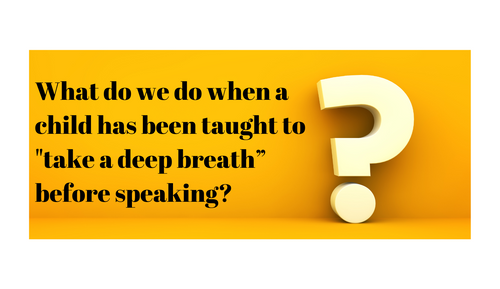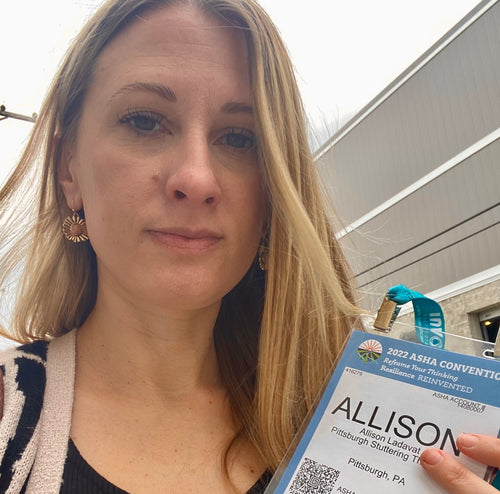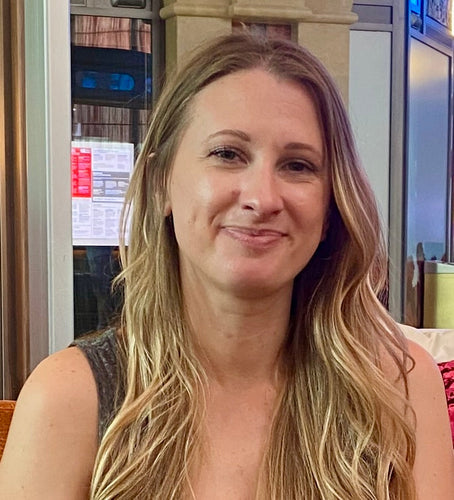Practical Thoughts Blog

Aug 05, 2024
"Mister Rogers' Speech"
Years ago, J. Scott Yaruss decided to study the speech patterns of the famous Mr. Rogers in order to discern if he did, indeed, speak "slower than other people." This blog looks into that study and the surprising results that can help SLPs and society. understand why "slow rate" is an entirely relative concept.

Jul 25, 2024
Shifting Perspectives About Stuttering
In the era of expanding our understanding of neurodiversity-affirming stuttering therapy, a first step is to make certain we, as speech-language pathologists (SLPs), are approaching assessment and therapy from the perspective of the person who stutters. Their experiences inform our therapy planning. There are reasons why our past professional practices were based upon the listener's observations of stuttering, and there are three major reasons why...

Dec 31, 2023
The "Deep Breath" Dilemma
This blog helps speech-language pathologists (SLPs) in their work with students who stutter. SLPs often feel confused about how to "un-train" deep breathing for students who have been instructed to take a deep breath before talking.

Nov 13, 2023
What is Verbal Diversity?
The Emergence of Verbal Diversity Before we delve into the concept of "verbal diversity," it's essential to understand the background of stuttering in society. In brief, stuttering has historically been viewed as a flaw, a burden, or something that needed to be "fixed." People who stutter have been subjected to therapies aimed at eliminating their disfluencies. This type of therapy has frequently led to frustration, low...

Oct 06, 2023
Fluency Focus: A Perspective from a Person Who Stutters
Reuben Schuff shared his experiences with stuttering therapy and highlights key points for speech-language pathologists to consider: focus not on the expectation of fluency but on the development of thoughts, feelings, attitudes, and behaviors of a person who is an effective, efficient, and joyful communicator!

Aug 30, 2023
My Experience as an SLP Graduate Student who Stutters
Allison Ladavat shares more about her experiences as a student in our field, highlighting the necessity for SLPs to become better allies for people who stutter.

Aug 29, 2023
"Next Time, Try to Be More Fluent"
Speech-language pathologist Allison Ladavat shares her experiences as a person who stutters in graduate school. Learn critical lessons about how we, as SLPs, need to change our own attitudes about stuttering.

Jul 19, 2023
Acceptance of Stuttering: One Stutterer's Perspective
A blog post by Lee Reeves, DVM Years ago, an SLP friend of mine asked how I would define acceptance. My response to his request led to an article for Letting Go, the official newsletter of the National Stuttering Association. I have shared my thoughts regarding stuttering acceptance (or what I now refer to as “coming to terms with stuttering”) in keynote speeches, presentations for...

May 24, 2023
Challenging Eligibility Criteria for Stuttering Services in the Schools
As our understanding of the speaker’s experience of stuttering increases via research evidence, patient evidence, and clinical practice, eligibility criteria for receiving stuttering services in the schools must be analyzed and challenged.

Jul 12, 2022
How do I help my client be more fluent on the phone?
Talking on the phone is commonly cited as one of the hardest challenges for people who stutter. Here are some tips for overcoming this challenge and helping speakers experience greater ease and communication effectiveness in this most difficult situation.

Jan 27, 2022
Why do people stutter less (or more) when reading?
It is commonly reported that people stutter less when reading. At the same time, some people actually stutter more when reading. Why is that, and what does it mean for our understanding of stuttering?

Jan 21, 2022
What do people who stutter want from stuttering therapy?
The best way to learn about what people who stutter want from stuttering therapy is to listen to them. This post highlights the importance of learning from people about their personal journeys with stuttering so that SLPs can ensure that we are aligned with our clients true goals and desires for therapy.
